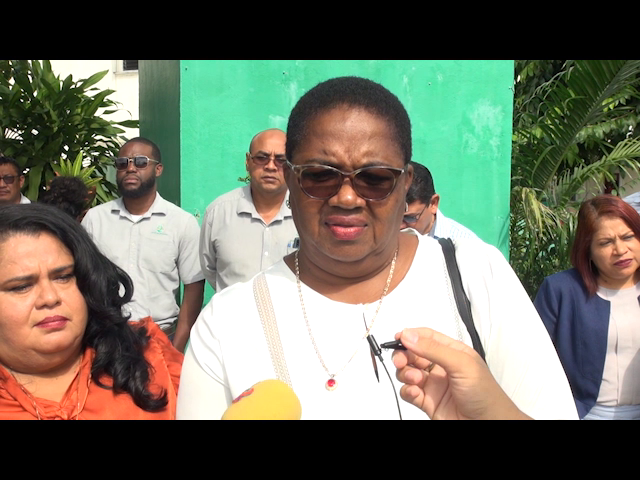The Christian Workers Union’s issue with the treatment of S.S.B. staff by management does not stop at feeling disrespected. The union claims that the special allowances granted towards nonmembers are a subtle form of union busting. As per regulation, Social Security inspectors are to undergo a mandatory three-year rotation. However, one inspector has been given a six-year extension, and as another extension was approved, the union has had enough. Leonora Flowers, President of the Union had this to say on the matter.
Leonora Flowers, President, Christian Workers Union
“It usually begins with a member getting their letter of transfer, sometimes three, four months before that transfer is to take effect. It happens normally in the summer months so that people are able to take their children and their family, move families across the country. That has been going on for 42 years, since SSV began. It has only gone on that sometimes, a member spends an additional year over or under in a certain location. This specific person has spent nine years in one location and that has been the contention that we’re Out 4:38 looking at toda. It was brought up to them October 2022 and we discussed it in August and in September 23 and the decision was made. The person was not going to be transferred in September because it was too short a window. We agreed. But they decided that it would happen in January. We agreed to that. And we understand that the transfer letter was sent out. Lo and behold, it was just rescinded a couple weeks ago. And you can, “the rest is history”. The person we’re talking about getting the special treatment is not a union member. So it goes without saying that our members will believe it’s union busting. If you can’t mete out the same kind of justice to everyone, then our members are at a loss. So it is union busting. Some may say no, but we believe that it is. The facts will show. We did not give an ultimatum. We’re leaving it for the management to decide and to use their better judgment, their best judgment in this situation. No need for ultimatum as yet. And we will not show our hands. We know what we have at our disposal. Our members are firm about this. They’ve given us a clear directive and we will continue to take a stand on their behalf”
